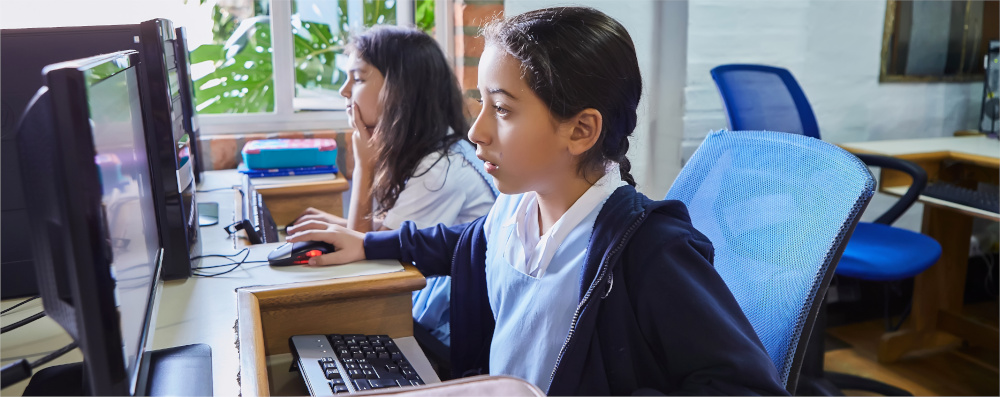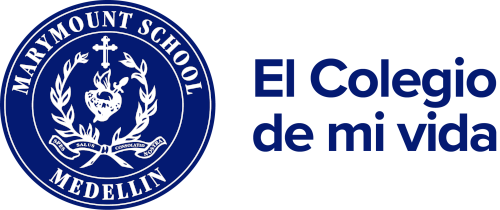
21ST Century Learning Community

The teaching and learning processes at Marymount School are based on our unique pedagogical model that includes a clear definition of learning processes and strategies which support a student-centered approach, a comprehensive assessment, acquisition of 21st century skills and the development of emotional skills. At Marymount, learning is defined as the process by which human development is made possible and fostered through change and transformation.
STUDENT BASED – LEARNING
Marymount is a learning community that encourages autonomy of students in their learning process, where teachers act as guides and mentors, allowing them to develop the skills and abilities for self-directed learning. Students engage with their strengths, interests, and passions in a personalized way; they have a voice and choice about what they learn, how they do it, and on how they demonstrate what they have learned.
ACTIVE LEARNING
Active learning helps promote higher order thinking skills, such as application and transfer of knowledge, and engages students in deep learning processes. Some examples of classroom methodologies used to ensure active learning are project-based learning, gamification, challenge-based learning, and the use of technology to promote exploration and creation of new knowledge.
21ST CENTURY SKILLS
Our emphasis on competency development is focused on acquiring skills that can allow our students to live in a constantly changing and globalized world. Said skills are not merely a component of our curriculum, but essential for lifelong learning.
• Critical thinking
• Research and information management
• Communication
• Collaboration
• Creativity
These skills are developed with the guidance of our teachers, in class activities and using various online tools, which have allowed us to develop our own definition of global citizenship:
Global citizenship
Global citizens with an ethical formation, recognition, and respect for diversity, understanding of local and global events , transcultural communication skills based on the knowledge of different languages, leadership, and service capacity to generate transformation in their environments within a sustainable framework.
Comprehensive Evaluation
Evaluation at Marymount is viewed as a means for measuring the effect and impact of learning. Students are encouraged to take risks and are allowed to learn from their mistakes. Teachers provide meaningful feedback sessions to guide students in their personal reflection, so that they understand the status and progress of their learning process. Achievement of different learning objectives is measured through summative and formative evaluations.
